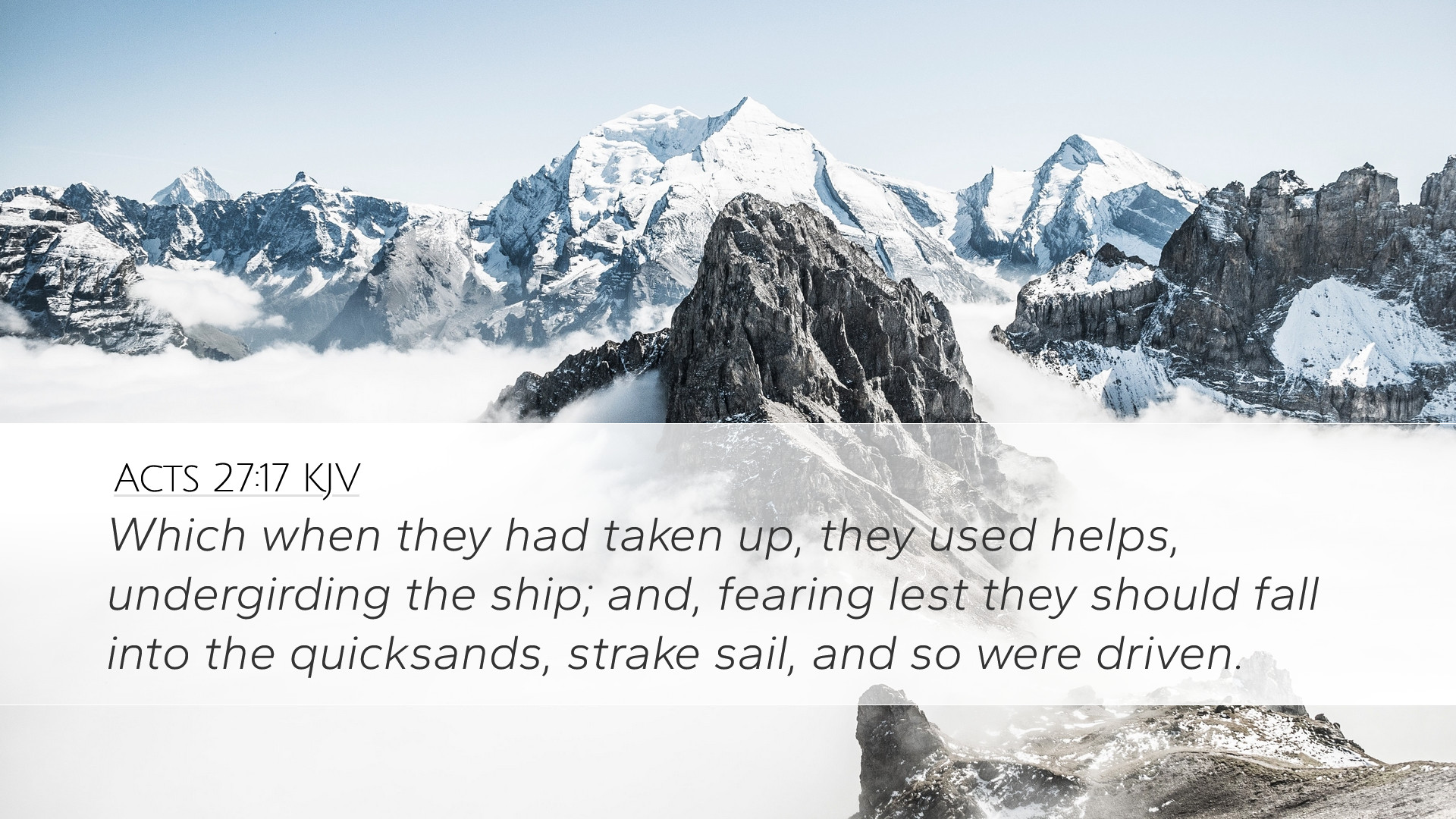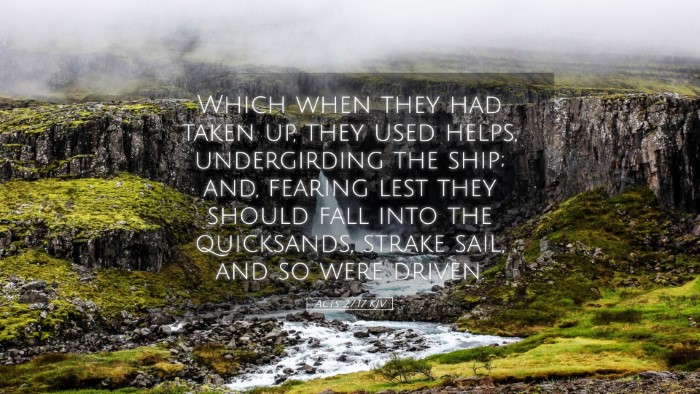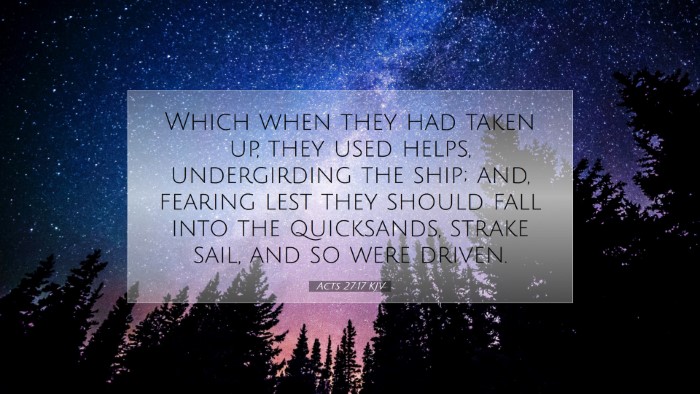Old Testament
Genesis Exodus Leviticus Numbers Deuteronomy Joshua Judges Ruth 1 Samuel 2 Samuel 1 Kings 2 Kings 1 Chronicles 2 Chronicles Ezra Nehemiah Esther Job Psalms Proverbs Ecclesiastes Song of Solomon Isaiah Jeremiah Lamentations Ezekiel Daniel Hosea Joel Amos Obadiah Jonah Micah Nahum Habakkuk Zephaniah Haggai Zechariah MalachiVerse
Acts 27:1 Acts 27:2 Acts 27:3 Acts 27:4 Acts 27:5 Acts 27:6 Acts 27:7 Acts 27:8 Acts 27:9 Acts 27:10 Acts 27:11 Acts 27:12 Acts 27:13 Acts 27:14 Acts 27:15 Acts 27:16 Acts 27:17 Acts 27:18 Acts 27:19 Acts 27:20 Acts 27:21 Acts 27:22 Acts 27:23 Acts 27:24 Acts 27:25 Acts 27:26 Acts 27:27 Acts 27:28 Acts 27:29 Acts 27:30 Acts 27:31 Acts 27:32 Acts 27:33 Acts 27:34 Acts 27:35 Acts 27:36 Acts 27:37 Acts 27:38 Acts 27:39 Acts 27:40 Acts 27:41 Acts 27:42 Acts 27:43 Acts 27:44

